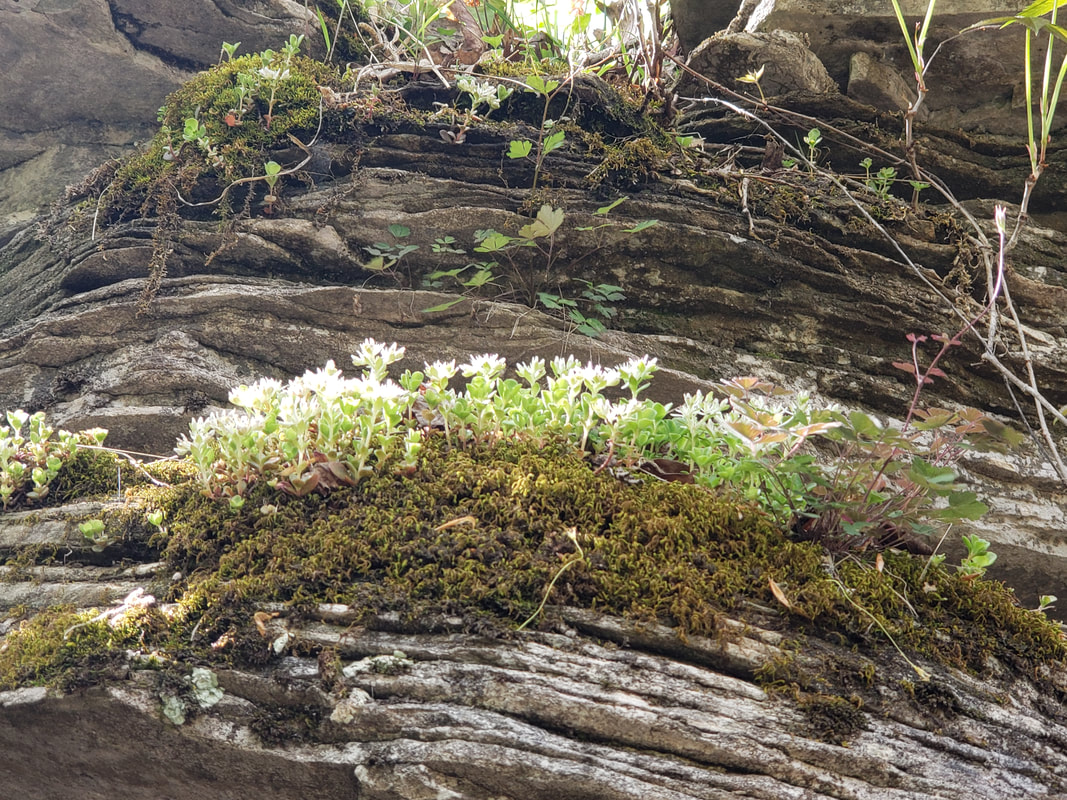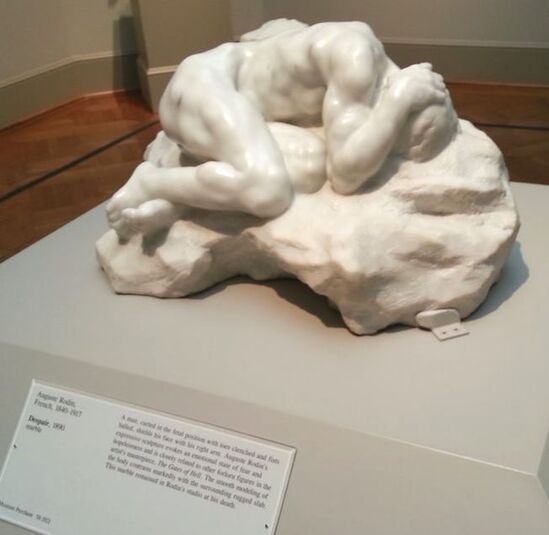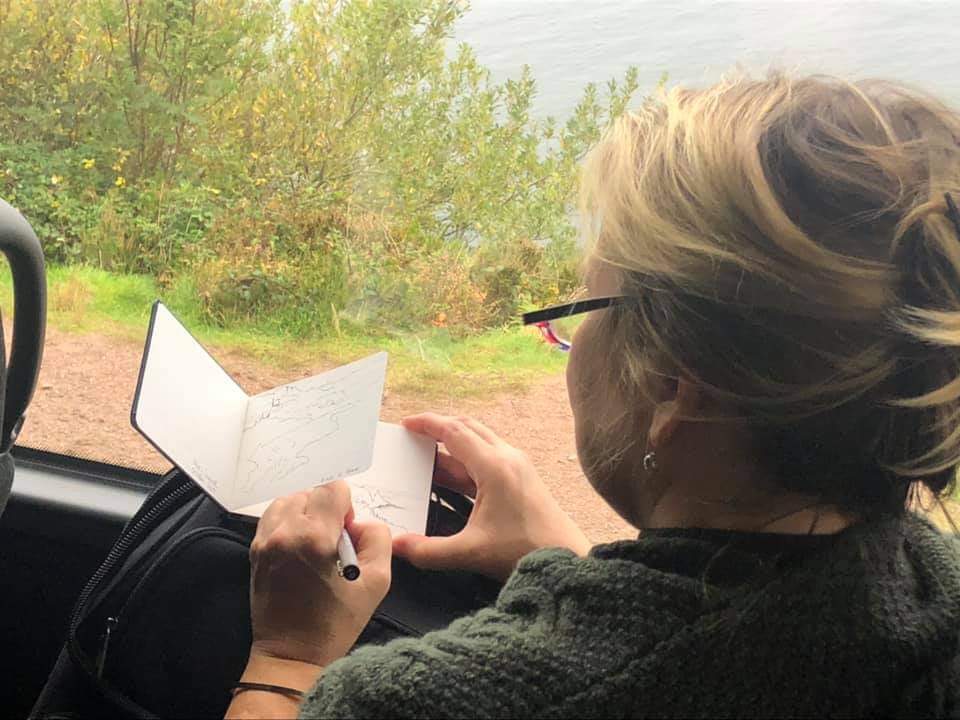|
There is a kindness that dwells deep down in things; it presides everywhere, often in the places we least expect. The world can be harsh and negative, but if we remain generous and patient, kindness inevitably reveals itself. Something deep in the human soul seems to depend on the presence of kindness; something instinctive in us expects it, and once we sense it we are able to trust and open ourselves.
—John O’Donahue To Bless the Space Between Us: A Book of Blessings There are times when I read John O’Donahue’s words on kindness and fear he is terribly mistaken. Stories of violence fill our airwaves; hateful words swirl in our society, wielded as weapons designed to silence and sideline others. We are days away from another election, and some elected officials and politicians shamelessly deploy racism and fear-mongering intending to motivate voters by their basest instincts. Ugly, fantastical rumors swell like wildfires, spreading across social media, while news on the very real challenges we face as a country suffer from lack of attention. At moments like these I tend toward despair, feeling deep down that the words of the poet Maggie Smith in her poem, “Good Bones,” may be more true than O’Donahue’s, ...Life is short and the world is at least half terrible, and for every kind stranger, there is one who would break you, though I keep this from my children…. And yet. Perhaps I am despite what I fear, surprisingly an optimist at heart, or merely naïve to a fault. Whenever I teeter on the abyss of despair, just when my cynicism thinks it’s won the day, something pulls me back. A fierce defiance rises up, just enough to push back against the forces of gloom. A spark of what might be hope appears, oftentimes in places I least expect to find encouragement. A few weeks ago I attended the 2nd annual Justice Festival at Morehead State University. Along with MSU students and staff, there was a class of high school students in attendance. Now, in the news you may read about the post-pandemic decline of test scores or in casual conversation it is often said that this generation is lazy and unengaged. The kids present at the Justice Festival upended those negative stereotypes. In workshops they asked insightful questions, brought facts to the conversations, and a tangible passion to issues which directly affect their lives. They were a real-life embodiment of the lyrics of the Broadway hit, Hamilton, “With every word, I drop knowledge. I'm a diamond in the rough, a shiny piece of coal.” Faced with the realities of injustice in the world, these high school students weren’t despairing; they were fired up and ready to rise up! As I left the Justice Festival, I realized that for all the helpful information presented, what I had really needed that day was the students from that high school class. In their passion I found an ember of resistance inside me, refusing to give up. I suspect Maggie Smith can’t quite let go of hope either, for her poem ends with a comparison to a realtor, walking prospective buyers through a fix-it-upper and the openness of a future yet to be, “This place could be beautiful, right? You could make this place beautiful. We could indeed make this place beautiful—one deviant act of kindness, one brave bit of good trouble at a time. May it be so.
0 Comments
Dear Disciples,
As I write these words war has been waging in Ukraine for several days. We see images of civilians huddling in transit stations, bombed out streets, and lines of refugees stretching for miles. My heart aches for the needless suffering we are witnessing. As our newsfeeds and television screens are constantly announcing “Breaking News,” it can be tempting to fill our hours with the latest updates. I confess I have spent many hours doom scrolling on Twitter, refreshing my screen in a never ending search for the latest news. Our access to instant communication, to livestreams on social media and correspondent updates on the news while connecting us in radically new ways can also paralyze us. This topic came up in a recent episode of a favorite podcast of mine, Mid-faith Crisis, co-hosted by a UK Baptist minister, Joe Davis and writer Nick Page. The two discussed their own feelings of powerlessness with respect to the news. Should we stop watching the news altogether to protect our mental health? We do have a responsibility to the world and to other human beings to be aware, and yet can we do so without fixating on things we cannot change? My takeaway from the podcast conversation was a personal intention of setting limits on the amount of time I spend consuming news, including turning off phone notifications. In a way this is learning to practice that powerful line from Reinhold Niebuhr's Serenity Prayer, “God, grant me the serenity to accept the things I cannot change, courage to change the things I can, and wisdom to know the difference.” In our Lent at Home kits you will find a reflective assessment tool, utilizing a wellness wheel. I invite you to use this assessment as we enter into Lent. We have additional copies available at the church office. I’ve been working my way through the wheel in February, and I’ve found the process enlightening. May this season of Lent a time of expansive living, as we welcome God’s dreams for ourselves and for the world. The natural habitat of Advent is a community of hurt. It is the voice of those who know profound grief, who articulate it and do not cover it over. But this community of hurt knows where to speak its grief, toward whom to address its pain….And because the hurt is expressed to the One whose rule is not in doubt, the community of hurt is profoundly a community of hope.
—Walter Brueggemann Advent is a season of waiting and preparation. Each year we come to the season of Advent and remind ourselves the pace of the Christian year is markedly at odds with the frantic holiday culture around us. This year feels different. 2020 has been a year defined by waiting—waiting for a bending of the curve, for restrictions to end, for test results, for 14 days of quarantine, for life to get back to normal, for election results, for a vaccine. We’ve done so much waiting this year; it is difficult to find motivation to wait more. This Advent, let’s approach the season from another angle. Yes, we wait in anticipation for the Christ Child. But let’s dig deep into our faith for the Spirit’s wellspring of hope. Each Sunday in Advent our worship will begin with the song, I Believe in the Sun. The lyrics are based on a story told to the BBC by a captured German soldier in 1945, who recalled that the words were found scrawled in a shelter in Cologne, where young Catholics were keeping some Jews in hiding during the Holocaust. I believe in the sun — even when it is not shining. I believe in God — even when [God] is silent. I believe in love — even when it is not apparent. We are living through a season in which it takes courage to hope. Let us be a people who resist the pull of despair. In times of hurt, we can be a “community of hope” and a light to the world. With hope and faith, Pastor Nancy |
AuthorA native of Illinois, Rev. Nancy Gowler lived for 26 years in the Pacific Northwest. She joined the ministry of First Christian Church in Morehead, KY, in July of 2020. Archives
January 2023
Categories
All
|



 RSS Feed
RSS Feed
